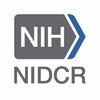
Coronary Heart Disease Incidence: Depression & Inflammation Risk
Cardiovascular DiseasesCoronary Disease3 moreTo examine the associations among depression, inflammation, and coronary heart disease using an existing data base and associated plasma samples.

ARISE - Aggressive Reduction of Inflammation Stops Events
AtherosclerosisCoronary Artery Disease2 moreTo assess the safety and efficacy of AGI-1067, as compared to placebo, in the treatment of vascular inflammation and atherosclerosis by assessing the reduction in cardiovascular events.

Markers of Oxidative Stress Present in Blood in Patients With Atrial Fibrillation
Atrial FibrillationInflammation1 moreAtrial fibrillation is an abnormal heart beat that starts in the upper parts of the heart and can cause stroke or death, if untreated. In general, treatments are not very effective, with frequent relapses of the abnormal heart beats. One explanation for the high relapse rate is that the treatments might not address the underlying cause of atrial fibrillation. Recently, the investigators have found that atrial fibrillation is associated with increased oxidative stress. This is a condition where abnormal oxygen forms are produced. These forms harm the cells of the heart, causing them to beat abnormally. The investigators have found increased oxidative stress in pig and mouse models of atrial fibrillation. They would like to see if oxidative stress is present in humans with atrial fibrillation. In this study, they will compare blood markers of oxidative stress between patients with and without atrial fibrillation. It is the expectation that participants with atrial fibrillation will have more abnormal blood markers of atrial fibrillation. This study requires participants to visit their doctors, undergo a history and physical examination, and give blood only once.

Framingham: Inflammation, Genes & Cardiovascular Disease
AtherosclerosisCardiovascular Diseases2 moreTo investigate the contribution of genetic and environmental factors to vascular inflammation, and to define the extent to which inflammatory phenotypes and genotypes predict subclinical and clinical cardiovascular disease (CVD).

Endotoxin and Bronchial Inflammation in Asthma
AsthmaLung Diseases1 moreTo evaluate airway inflammation in persons with asthma exposed to endotoxin, a common occupational air contaminant. Subjects are subsequently challenged with allergen.

Inflammation Genomics and Atherosclerosis - Ancillary to CARDIA
Cardiovascular DiseasesAtherosclerosis4 moreTo examine the associations of common variation in inflammation/thrombosis genes with intermediate quantitative phenotypes and subclinical coronary atherosclerosis in the Coronary Artery Risk Factor Development in Young Adults (CARDIA) Study, a large, bi-racial cohort study.

Cyclooxygenase Levels Following Surgery to Remove Third Molars (Wisdom Teeth)
HealthyInflammationThis study will measure levels of an enzyme called cyclooxygenase in gum tissue following third molar (wisdom tooth) extraction. Cyclooxygenase is thought to contribute to pain that normally follows tissue injury or surgery. Healthy volunteers between 16 and 35 years of age who require removal of their third molars may be eligible for this study. Participants will receive an injection of a local anesthetic (lidocaine) in the mouth and a sedative (midazolam) through an arm vein before surgery. Before the tooth is removed, a small tissue sample (biopsy) will be collected from the gum tissue covering one of the lower third molars to be extracted. After surgery, a second biopsy will be taken at some point between just after surgery to the time when pain from the extraction starts to develop. These tissue samples will be analyzed for cyclooxygenase levels. Patients will stay in the clinic for up to 4 hours after surgery while the anesthetic wears off. During this time, they will complete pain questionnaires. If needed, patients may receive additional medicine for pain relief at any time during the surgery or the 4-hour observation period. They will also be given standard pain medication to take home at the end of the study.

Colchicine in Periprocedural Myocardial Infarction: the Role of Alpha Defensin
InflammationMyocardial InfarctionThe aim of this research is to study the effect of a loading dose of colchicine on the occurrence of periprocedural myocardial infarction (PPMI) in elective percutaneous coronary intervention.

Neurogenic Inflammation in Peri-implant and Periodontal Diseases
Neurogenic InflammationPeriimplant Diseases3 moreRegulatory effects of some neuropeptides substance-P (SP), neurokinin-A (NKA), calcitonin gene-linked peptide (CGRP) and neuropeptide-Y (NPY) )on inflammatory responses in periodontal disease has been described; however, the impact of neuropeptide levels are not clearly defined in healthy and diseased peri-implant tissues.ın order to evaluate the situation, thirty-nine implants that have been loaded over the past 12 months and their symmetrically matching teeth were evaluated using a split-mouth study design. Clinical periodontal examinations included the Silness-Löe plaque index, Löe-Silness gingival index, bleeding on probing, probing pocket depth and clinical attachment level parameters were determined. Gingival crevicular fluid (GCF)/Periimplant sulcular fluid (PISF) samples were collected, and the levels of the neuropeptides were determined by enzyme-linked immunosorbent assay. Correlations between GCF/PISF neuropeptide levels and the clinical examination parameters were evaluated in the peri-implant/periodontal soft tissues.

Oxidative Stress, Inflammation, and Lipoprotein in Metabolic Syndrome
Metabolic SyndromeObesity1 moreObesity is associated with general low grade inflammation and, consequently, of oxidative stress that affects properties and functionality of lipoproteins. Metabolic syndrome exacerbate low grade inflammation. The intentional weight loss of at least 5% of the initial weight can modulate the pro-inflammatory state and reduce the oxidative stress related to the metabolic syndrome, thus diminishing the cardiovascular risk.
